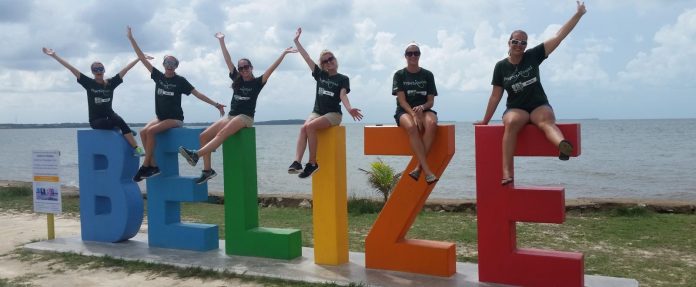
3 Proven Examples That Show Sustainable Tourism Is Not Just A Buzzword in 2021
Date:

Share post:
Tourism is one of the world’s fastest expanding industries, and it can provide a critical economic boost to countries that market themselves as vacation spots. Many people have been bitten by the travel bug and are visiting other parts of the country. States have eased restrictions on domestic tourism, which has been impacted hard by the covid outbreak. As a result, the focus this year on World Tourism Day (September 27) is on ethical and sustainable tourism.

So, What Is Sustainable Tourism?
Sustainable tourism refers to actions in and by the tourism sector that are environmentally friendly, as well as an ambition to acknowledge all of tourism’s effects, both positive and negative. Its goal is to reduce negative effects while increasing good ones.
Economic leakage, environmental harm, and congestion are just a few of the negative consequences of a destination.
Job development, cultural legacy preservation, wildlife preservation, and other positive effects on a place are only a few examples.
Furthermore, sustainable tourism “refers to the environmental, economic, and socio-cultural components of tourism development, and an appropriate balance must be achieved between these three dimensions to ensure its long-term sustainability,” according to the definition.

Thus, Sustainable Tourism should:-
?Make the best possible use of environmental resources, which are a critical component of tourism development, while also preserving important ecological processes and contributing to the preservation of natural heritage and biodiversity.
?Respect the host communities’ socio-cultural authenticity and contribute to intercultural understanding and tolerance
?Attend to the demands of visitors and industry while delivering a socioeconomic advantage to everyone.
?Ensure that economic operations are feasible and long-term, with socioeconomic advantages for all stakeholders.
Sustainable tourism should also maintain a high level of tourist satisfaction and provide a meaningful experience for visitors, boosting their understanding of sustainability issues and encouraging them to participate in sustainable tourism initiatives.
So, in order for tourism to continue while still remaining within our planetary limitations and respecting all people, the globe must shift away from unconscious, mass tourism and learn from existing examples of thriving sustainable tourism models.
How can Travellers be Sustainable Tourists?
We must remember that we are visiting as travellers. When we begin to consider the repercussions of our behaviour when travelling, we are acting responsibly and making a difference. This isn’t going to happen in a day or two. The difficulties related with tourism do not have a miracle solution. However, we can endeavour to make travel safer and more environmentally friendly.
Here are some suggestions on how we might travel more sustainably:
?To get to your location, think about the most environmentally friendly mode of transportation.
?If at all feasible, fly in direct flights and in economy class.
?Stay in a place that is owned and operated by a local.
?Go rogue and set up camp.
?Eat at local-owned eateries and cafes.
?Bring just eco-friendly essentials and light clothing.
Some examples of sustainable tourism
?Controlled tourism in Bhutan
Bhutan, located east of the Himalayas, is regarded as one of the world’s happiest countries. The country has been relatively free of colonisation, ensuring that the people’s sustainable way of life has been preserved.
The tourism industry in Bhutan is based on the philosophy of “high value, minimal impact.” This was accomplished by enforcing stringent access rules as well as a daily visiting fee. However, a major percentage of the tariff goes toward maintaining and developing the country’s infrastructure, as well as contributing to Bhutan’s free health and education programmes.
?A community run backpacker in South Africa
Mdumbi, a wanderer on South Africa’s Wild Coast, wants to encourage “community involvement and sustainable eco-tourism.” The backpacker takes pride in being a part of the Eastern Cape’s amaXhosa culture, and is located in the middle of a traditional community.
Mdumbi, a wanderer on South Africa’s Wild Coast, wants to encourage “community involvement and sustainable eco-tourism.” The backpacker takes pride in being a part of the Eastern Cape’s amaXhosa culture, and is located in the middle of a traditional community.
?Conservation ‘Volun-touring’ in Belize
Responsible Travel, a UK-based responsible tourism company, promotes more responsible travel choices through online material and the organisation of sustainable and ethical vacation packages. Individuals can volunteer at a conservation organisation in Belize as part of one of these packages
Tourists can “join a team of local conservationists and professionals as part of a volunteer group working 5 days a week in Belize’s jungles,” according to the website. Before travelling, volunteers are thoroughly vetted and given a volunteer guide as well as caller assistance to guarantee that voluntourism is done responsibly and respectfully to residents, animals, and the environment.

Conclusion
As the world progresses toward sustainability in all aspects and industries, there is no denying that the tourism industry will require a massive overhaul to transition to low-impact, meaningful travel experiences that do not harm people or the environment on which we rely.
Be it a community-run backpacker set up in South Africa or an instance of controlled tourism in Bhutan, the world is finding out new ways to cope up with travelling sustainably and be inclusive in approach. This will give rise to emerging tourist destinations keeping in mind COVID-19 protocols.
As a result, the 27th of September is commemorated to raise awareness about the worldwide challenges described in the 2030 Agenda for Sustainable Development, as well as to highlight the work of the tourist industry in achieving these goals.
Travel Safely. Travel Sustainably.
